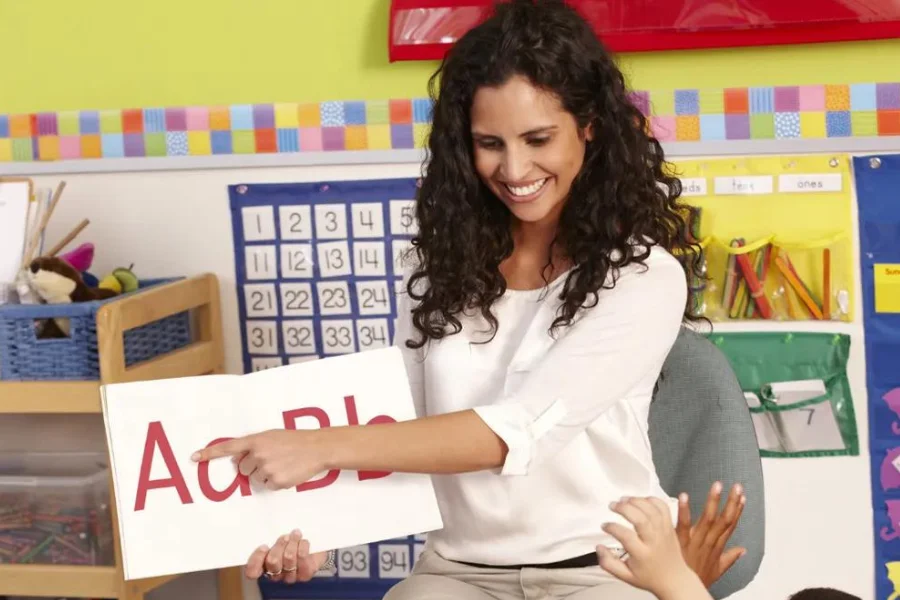Graphemes in English Language

Source: rackcdn
Graphemes in English Language
Graphemes in English Language are the building blocks of written communication, signifying the smallest functional parts of sound. Knowing Graphemes in English is important for learning reading and writing, as they connect how words sound to how they are written.
For anyone learning or teaching English, a solid hold of Graphemes increases phonetic and language skills, making the process of decoding and spelling words easy. This essential element of English literacy provides the foundation for exploring more complex linguistic structures and enriching one’s language capabilities.
Table of Content

Source: scholastic
What are Graphemes?
Letters or groups of letters that resemble the phonemes, or sounds, in spoken language, are Graphemes. For example, the word ‘shop’ consists of three graphemes: ‘sh’, ‘o’, and ‘p’, each corresponding to a single phoneme.
To know more about – the Phonics Teacher Training Course, Call or WhatsApp at +919869866277 / +919869546913.
To download brochure for Phonics Course for Teachers Click Here!
Types of Graphemes in English Language
The following are the Types of Graphemes :
- Single letters – e.g., ‘a’, ‘f’, ‘r’, etc.
- Digraphs are two letters making a single sound – e.g., ‘ea’, ‘th’, ‘ng’
- Trigraphs, three letters uniting to give a single sound – e.g., ‘igh’ in ‘light’
- Split digraphs, where two letters are split by another letter but still make one sound – e.g., a-e as in ‘bake’
Importance of Learning Graphemes
Let us look at the Importance of Learning Graphemes :
- Learning Graphemes is crucial for developing literacy skills. It helps in decoding words while reading and in constructing words while writing.
- A solid understanding of Graphemes also aids in improving spelling and pronunciation, Essential Skills for Effective Communication.
How to Identify and Use Graphemes
The following will help you on How to Identify and Use Graphemes:
- To identify graphemes, one must learn to recognize patterns in words and understand the sounds these patterns correspond to.
- Practicing phonics can be an effective way to become familiar with the use of graphemes. Involving in reading and writing exercises can also help set this knowledge.
Graphemes play an important role in literacy, as they bridge the gap between spoken and written communication. For teachers, parents, and children, underlining the understanding of graphemes can knowingly impact reading proficiency and language development. This foundational knowledge enhances basic reading abilities and also fosters a profound appreciation of the nuances of the English language.
To experience our Phonics Teacher Training Course, Dial / WhatsApp +919869866277 / +919869546913.
To download the Phonics Course brochure, Click Here!

Source: phonicspower
Phonic Course
If you’re looking to enhance your teaching methodologies or improve your understanding of phonics, the Phonic Course offered by Vidhyanidhi Education Society, a more than twenty-year-old, renowned Govt. Registered institution is an excellent choice. This Phonics Teacher Training Course is meticulously designed to provide all-inclusive training in the art of teaching phonics, which helps the teachers make their students confident at reading, writing and spelling words.
Here are the detailed benefits and features of this Phonic Course:
18 Hours of Intricate Training
The Phonic Course offers a focused, 18-hour training regime that dives deep into the fundamentals of phonics, ensuring participants grasp topics like English Language Graphemes and other concepts thoroughly.
Synthetic Phonics Teaching Methodology
This Phonic Course adopts the popular UK-based Synthetic Phonics Teaching Methodology. This is a highly effective approach to teaching children how to read and write, using a systematic phonics method of teaching.
Dynamic Teaching Aids
Participants will benefit from engaging lectures enhanced by audio-visual teaching aids. These modern resources help simplify complex concepts and ensure a more effective learning experience.
Interactive Sound Demonstrations
The Phonics Teacher Training Course includes unique demonstrations of the 42 sounds (including letter sounds and digraphs) using jingles, stories, and actions. This creative approach helps embed phonetic sounds in memory, making the learning process both enjoyable and effective.
Thorough Practice Sessions
Comprehensive practice sessions cover all 42 sounds, providing participants with the confidence to teach and use these sounds accurately. Regular practice is crucial for mastering the pronunciation and usage of Graphemes in English Language.
Mock-drills and Practical Application
Mock drills are conducted to simulate real-life teaching scenarios, preparing participants for actual classroom settings where they can apply their knowledge effectively.
Doubt-solving and Interactive Discussions
The Phonic Course ensures that all participants have the opportunity to clear their doubts through dedicated Q&A sessions. This open dialogue fosters a deeper understanding and clarifies any uncertainties regarding the curriculum.
This Phonic Course is not just about learning phonics; it’s about transforming educational approaches and enriching teaching methodologies. For anyone involved in education, from teachers to parents, understanding phonics is essential, and this Phonic Course provides the tools to achieve that expertise effectively. Join the Phonic Course at Vidhyanidhi Education Society (Govt. Regd.) to step up your educational game and make a lasting impact in the field of literacy and language teaching.
Graphemes in English Language
Master English graphemes with Vidhyanidhi Education Society’s Phonics Course today!
To experience our Phonics Teacher Training Course, Call / WhatsApp +919869866277 / +919869546913.
To download brochure for Phonics Course for Teachers Click Here!
FAQs
How do you Identify Graphemes?
To identify graphemes, recognize the smallest written parts of words that correspond to sounds, like 'sh' in "ship" or 'e' in "bed."




